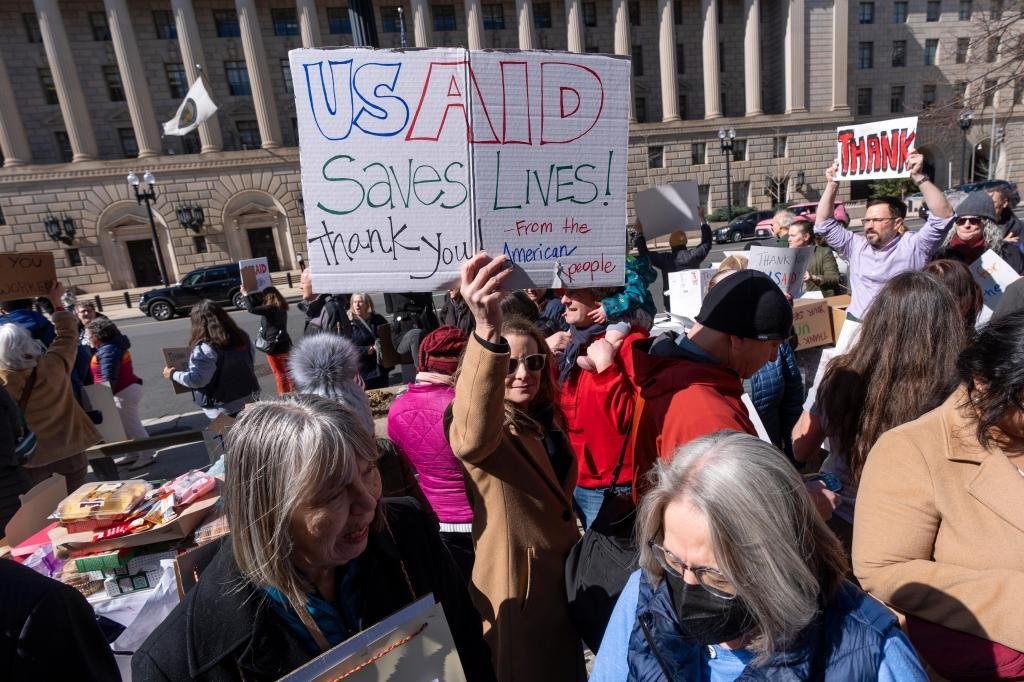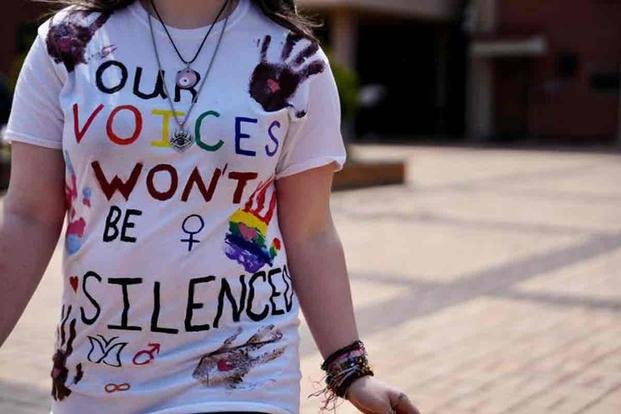e-Edition
Sign up for email newsletters
Sign up for email newsletters
e-Edition
Trending:
In an era where global interconnectedness is paramount, recent proposals from the Trump administration signal a troubling retreat from America’s role as a global leader.
That is equally true within our own nation. The proposed budget cuts to foreign assistance — drastically cutting funding managed by the State Department and the U.S. Agency for International Development (USAID) — are having catastrophic consequences for millions around the world. Equally, the cutbacks within our own borders harken to a retreat from traditional democratic values of equity and sustainability. All these cuts threaten humanitarian initiatives at home and abroad. Some jeopardize U.S. national security and economic stability.
USAID has historically been a lifeline for millions worldwide, facilitating essential humanitarian and development assistance since its establishment in 1961. It brought lifesaving medicines, food, clean water and educational opportunities to people in some of the most challenging circumstances. A staggering 23 million children stand to lose access to education, and as many as 95 million people could be cut off from basic health care due to these proposed reductions, a potential increase of over 3 million preventable deaths annually. The President’s Emergency Plan for AIDS Relief (PEPFAR) has saved over 25 million lives, primarily in Africa.
The cutbacks have a far-reaching impact. Halted aid is having a dire impact in eastern Congo, where American aid funds access to food, water, electricity and health care for 4.6 million people displaced by years of conflict. Education programs have been halted in Mali, a conflict-battered West African nation. In Sudan, the aid freeze means 600,000 people will be at risk of catching and spreading cholera, malaria and measles. And the U.S. aid cuts are already having a crushing impact on the people of Myanmar.
Sen. Jeanne Shaheen, the top Democrat on the Senate Foreign Relations Committee, expressed her deep concern regarding these proposed reductions. “When ‘America First’ becomes ‘America Alone,’ our economy, security and prosperity will suffer as adversaries fill the void the Trump administration leaves behind.”
Her sentiment reflects a growing consensus: Neglecting foreign aid undermines both our moral obligation to assist others and our strategic interests.
As these proposed cuts loom, it is essential to reflect on the broader implications of a retreat from international engagement. The world is watching and America’s leadership is needed now more than ever. The humanitarian crises unfolding in Gaza, Syria, Sudan and Kosovo highlight the urgent need for sustained U.S. support for development and aid initiatives, which are not only moral imperatives but also national security concerns.
Local economies, including those in Marin County, could feel the repercussions. U.S. agriculture businesses that rely on USAID contracts may see a decrease in opportunities. Cutbacks to National Institutes of Health funding present significant challenges for institutions like the University of California at San Francisco School of Medicine and its UCSF Health hospitals, particularly with potential cuts to infrastructure and administrative costs that support essential research activities.
In response, UCSF is taking proactive measures, including implementing a hiring freeze and advocating through legal actions and outreach to Congress. Will this be enough?
UCSF leaders are alarmed by the recent higher education bill which proposes $330 billion in federal spending cuts that could eliminate crucial programs for students. Moreover, we worry significant cuts to Medicaid could threaten UCSF’s mission to provide care to all patients. It is vital for constituents to voice their concerns to Congress about protecting health care access and opposing cuts to the Medicaid program.
The proposed budget cuts both here and abroad represent a perilous shift in U.S. policy. These reductions not only threaten the lives of millions but also undermine the very principles of American leadership, democratic values and global stability. As we face a multitude of pressing challenges, it is imperative that we advocate for continued investment in social programs that promote peace, stability, and prosperity for all. Our citizens and the world deserve a committed partner in our government, not a naysayer.
Judy Kimmel, of Mill Valley, is a business consultant, educator, political activist and board emeritus chair of the Peace Alliance. Kimberly Weichel, of Tiburon, is an author, educator, peacebuilder, adviser and board member of the Marin United Nations Association.
Copyright © 2025 MediaNews Group



